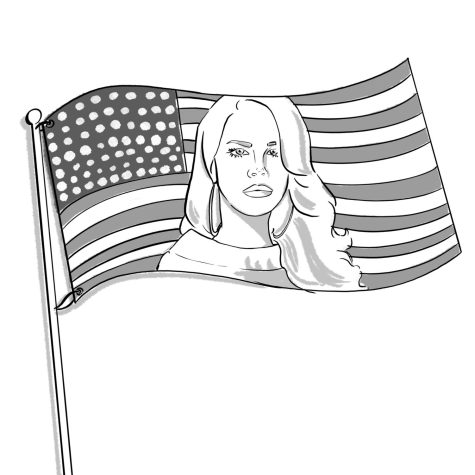Lit Review: “The Great American Dirtbags”
February 4, 2016
“In some ways, I feel like I’m bottling up the years of my twenties and early thirties,” writes Luke Mehall in the introduction of his book “The Great American Dirtbags.”
“Dirtbags” is the rock climber’s second collection of short stories (and includes two poems) about outdoor adventure and the West. As the title suggests, the stories attempt to dig deeply into the root of the counter culture of the so-called dirtbag lifestyle.
Published in 2014, “Dirtbags” stands on its own but is a “sequel of sorts” to his first book, “Climbing Out of Bed” (2013). “The Great American Dirtbags” features some of the favorite characters of “Climbing Out of Bed,” including Mehall’s American-flag spray painted car the “Freedom Mobile.” While “Climbing Out of Bed” focused on climbing stories, “Dirtbags” features stories about broader climbing culture: mainly, mountain towns and the people who live in them.
Mehall has had a long writing career. In addition to being the publisher of “The Climbing Zine,” his stories have regularly been published in newspapers, magazines and on Patagonia’s blog. He is expecting to release another book this year.
In “The Great American Dirtbags,” the collection opens with “The Dirtbag Manifesto” and includes such stories as “Ode to the Townie,” “Living A Dream, Or a Vigorous kind of Loneliness,” “The Bromance” and “Criminal Kitty and Sheep at Large: Three Years of House Sitting.”
In “The Dirtbag Manifesto,” Mehall tells the story of how he came to be a “born-again dirtbag.” It begins with the bleak scene of Mehall in his hometown of Normal, Illinois, where he was suicidal, addicted to prescription drugs and living in his parents’ basement.
He hits the road on search of an ex-girlfriend to tell her she had given him hepatitis. After traveling the country alone and hopeless for weeks, he gives up and stops in Gunnison, Colorado. He decides to stay in the West and finish school at Western State College in Gunnison.
“I was a hungry and lost soul when I moved out to Colorado from Illinois, and I stumbled upon a people I can best describe as dirtbags,” he writes.
In another essay, he simply explains that he moved to Gunnison to finish school. These inconsistencies are common in his book because many of the pieces were previously published. A few times readers are given multiple sides of the same slices of stories written in different points of his life and focusing on different things.
Although some readers may find his mismatched collection repetitive or choppy, they paint a picture of a complicated life. His layers of stories characterize the contradictions of recovery and the complexities of a multi-faceted memory.
Mehall’s work is strikingly honest. He doesn’t filter his stories to appear cooler, smarter or a better climber. He also doesn’t romanticize the climbing culture by covering topics like drug use and addiction. Telling the story of his very first climbing experience, Mehall recalls how members of the group disappeared to shoot up heroine in the car beforehand. Because of these painful, raw anecdotes, “Dirtbags” is darker, in many ways, than “Climbing Out of Bed.”
Overall, “Dirtbags” is a inspiring but bittersweet read. It’s soul can be summed up in Mehall’s description of the adrenaline-filled moment when a climber slips and waits for the rope to catch him. He describes feeling alive in the freefall and knowing, in these seconds, that he wanted “nothing to do with dying young.”
My favorite of the twenty short stories and poems in the collection is “My First Piece for Durango,” although I am certainly biased. It was unexpectedly fulfilling for me to read Mehall’s words on my own small hometown of Durango, Colorado and for him to put into words the things the Rocky Mountains have made me feel.
I favor the short stories in “Dirtbags” over the two poems featured in his collection. His truthful, simple prose harnesses his honesty well in essayistic narratives, but in poetry the message is either given too obviously or comes across blocky and unclear.
What Mehall’s collection lacks in seamlessness, it makes up for in heart. Editor and critic John Long described Mehall as “one of the few adventure writers out who handle the tricky first person voice as if it were made for him.”
Mehall’s short stories leave nothing untouched: He covers the full range of emotions in the pages of “Dirtbags.” The reader follows him as he finds solace in a life of couch-surfing, living off instant oatmeal and self-haircuts.
“The Great American Dirtbags” is a modern twist on Kerouac, Abbey and Ginsberg. It’s an honest book about the American West, full of ecstasy, longing and the power that place can play in our lives.






